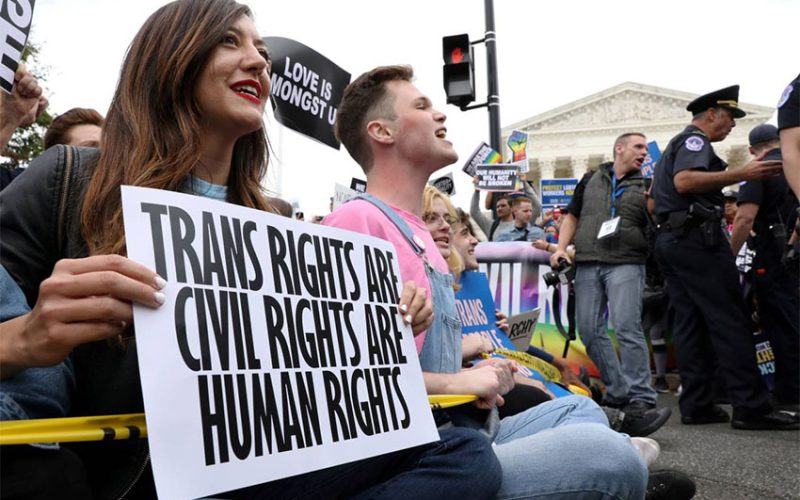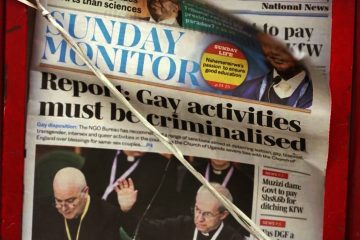JACK GRAHAM
HUNDREDS of celebrities have joined advocacy groups in an open letter in support of transgender rights, criticizing a raft of U.S. states that want to bar young, trans-Americans from playing school sports or getting medical help.
The signatories – from feminist Gloria Steinem and Vogue editor-in-chief Anna Wintour to actor Regina King and singer Selena Gomez – called for an end to the “long history of assaults” against trans women and girls.
Never before has it been more dangerous to be trans, the letter said, denouncing “anti-transgender rhetoric” and the barriers facing trans people across multiple industries.
The intervention by more than 465 signatories came as debate intensifies worldwide over what rights to extend to trans and non-binary people, who do not define themselves as male or female.
Questions have been raised over when a child is old enough to change gender, whether trans women can compete in professional sports and who can enter a women-only space.
In the United States, Republicans have introduced a record 127 bills on trans issues in 22 states so far in 2021, according to LGBT+ group Human Rights Campaign.
“For far too long, lawmakers have worked to strip trans women of their civil liberties – in 2021, once again, we’ve seen a wave of bigoted governmental policies and legislation,” said the letter, released by LGBT+ advocacy group GLAAD.
In the United States, approximately 1.4 million adults identified as transgender in a 2016 report by the Williams Institute, a research center at the University of California.
CULTURE WARS
In Arkansas on Monday, legislators passed a measure that could make it the first U.S. state to prevent doctors from providing certain types of gender-affirming care to trans youth.
Supporters of the bill say minors are too young to decide about life-changing treatments such as puberty-blocking drugs, which have been the subject of high-profile lawsuits globally.
Trans activists say such treatment can be life-saving.
A study by Boston Children’s Gender Multispecialty Service found that nine in 10 trans adults who had been denied puberty-blocking treatments experienced suicidal thoughts in their lifetime.
Raquel Willis, a trans rights activist who organized the letter with GLAAD, said it was published at “probably the most important time in recent history” for transgender rights.
Pointing to the raft of legislation under debate, she said most of those arguing for restrictions were men “exploiting the ignorance of the general public about our issues.”
“A lot of the anti-transgender rhetoric is salaciously said to be about protecting women and girls, but clearly that’s not the case,” she told the Thomson Reuters Foundation.
Released on International Transgender Day of Visibility, the letter said 2020 was the deadliest year on record for violence against transgender people, with more than 44 murders.
“Visibility has been both a blessing and a curse to the transgender community,” said Willis, pointing to the greater opportunities unlocked alongside a heightened risk of abuse.
The letter’s authors also criticized what they called a “contingent of self-identified feminists, who have been promoting damaging and violent ideas about trans people for years in the United States and internationally.”
LGBT+ activists have been particularly critical of the author J.K. Rowling, who has spoken out on trans issues, raising concerns about women’s rights to single-sex spaces and suggesting young people are rushing into transitioning genders.
In a 3,600-word essay last year, she defended her right to speak about trans issues without fear of abuse, and explained that her views were over women’s safety and stemmed from her own past experiences of domestic abuse and sexual assault.














